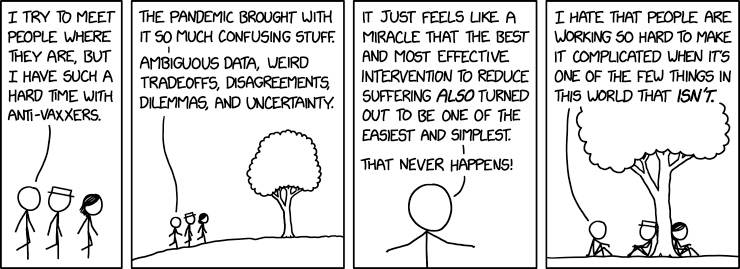Yes, masks and physical distancing probably did have some COVID benefits
The Royal Society in the UK looked at multiple studies of non-pharmaceutical interventions (NPIs) against COVID-19 and issued a report (and summarized here in the BMJ):
“The report is non-judgemental on the timing and manner in which NPIs were applied in different regions and countries around the world. It focuses on understanding the impact of NPIs on SARS-CoV-2 transmission and makes no assessment of the economic or other societal impacts of the different NPIs…
The weight of evidence from all studies suggests that wearing masks, particularly higher quality masks (respirators), supported by mask mandates, generally reduced the transmission of SARS-CoV-2 infection. Studies consistently, though not universally, reported that mask wearing and mask mandates were an effective approach to reduce infection…
Stay-at-home orders, physical distancing, and restrictions on gathering size were repeatedly found to be associated with significant reduction in SARS- CoV-2 transmission, with more stringent measures having greater effects…“
There is room to debate the societal risk/benefit ratio of the application of these measures; that’s not the point of the paper. What it does suggest is that blanket statements that “these measures are ineffective” are not true, and they must be weighed carefully in the face of the expected future respiratory pandemics we’ll face.


